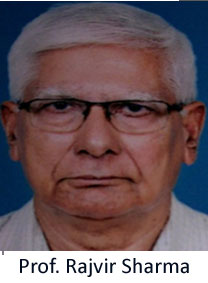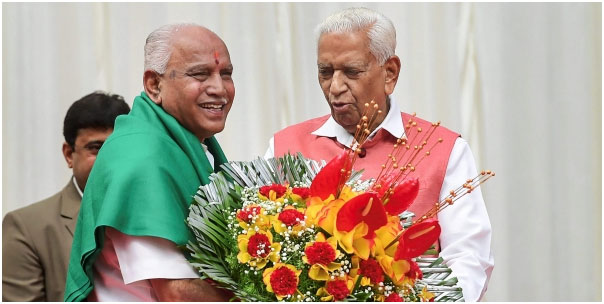
Elections to the Karnataka Legislative Assembly are over and it has come out with a fractured verdict where in no political party was able to get absolute majority. The BJP emerged as the largest single party with 104 seats followed by the Congress with 78 seats, 44 seats less than its 2013 tally and the party at the third place was JDS with 37 seats, three seats less than what it got in 2013.
But what is the electors’ message coming out of this election? The first and the foremost message is that Karnataka disapproves the politics of manipulation, machination, and division and of negative rhetoric. The second message is that the electorate wanted a change of government. This is evident from the fact that the incumbent chief Minister himself lost in one constituency and managed somehow to win in the other with a margin of just 1600 and odd votes and the seats of the Congress were tremendously reduced.
This may be rightfully interpreted as the rejection of the Congress by the voter. The third message is that BJP was favoured by them as an alternative government in broad terms as that party fell short of majority by a marginal number.
Role of the governor in such a fluid political situation is to form a government that is not only able to command the confidence of the Assembly, but also be stable. Before proceeding further, it would be pertinent to recall here that Congress and the JDS entered into a post poll unprincipled alliance to merely keep the BJP out of power, without having framed any common programme and policy frame and forget the fact that such alliance would betray the electoral verdict as both Congress and JDS fought bitterly against each other and made ardent appeal to the voter to defeat each against the other.

However, after poll results Congress decided to extend unconditional support to the JDS in the formation of the government. So the question, and important one, before the governor was not only to go by the numbers but also to see whether such an arrangement will provide a stable, honest and corruption free and blackmail free government. If one goes by the examples from the history, one may recall that none of the prime ministers, CharanSingh, Chandrashekhar, HD DeveGowda, IKGujaral,who were given unconditional support by the Congress, could survive beyond months. Even here one can therefore legitimately infer the same scene. The JDS by aligning with Congress is merely pushing the state toward another election sooner than later.
So, the governor was right in deciding to invite BJP, a party with 7 seats short of majority, to form the government and prove the majority on the floor of the House. If it did that, it would be in a position to complete a full term of 5 years and that would be in the best interest of the people. It would not be wrong to point out here that a governor of a state is under oath not only to uphold the constitution, but also to devote himself to the wellbeing and welfare of the people of the state. Had he invited the JDS to form the government with external support of the Congress merely on the basis of numerical strength, he might have compromised the welfare and well being of the people of Karnataka.
Now that the BJP could not prove its majority on the floor of the House, it remains to be seen whether the fears of instability will come true as now onward the daily concern of the CM would be to defend his wicket instead of devoting himself to the issues of development and growth. Moreover, Congress would enjoy authority without responsibility under such an arrangement. The government would arguably be subject to undue pressures and even blackmail.
The other best possible alternative, in the aftermath of defeat of BS Yedyyurappa government, could have been for the governor to insist on the Congress to stake the claim for the office of chief minister as the second largest party in the Assembly with the support of the JDS as partner in the government. In that situation, one could hope of a stable government and also a government not open to arm-twisting by the other partner.
The governor should also insist that the post poll alliance should come to him with a common minimum programme on which they shall work for 5 years. The Congress did not do anything of that sort. The Supreme Court also did not strike down the decision of the governor, it merely preponed the trial of strength to satisfy the complainant party.The court did not declare the decision of the governor even in the case f appointment of the Protem Speaker.This nullifies the argument of the Congress regarding the powers of the governor in regards to formation of the government in a fluid political situation.
Now that the dust seems to have settled, at least for now, it is imperative to reflect on the future remedies to ensure a government in office as per mandate of the people of the state or of India as the case may be. The most important step to meet such challenge is to put in place, as a part of the constitution, the recommendations of the Sarkaria Commission and Punchhi Commission which provide a remedy to tackle an uncertain /fractured verdict. In this case, it is pertinent to restate them as follows:
In case any political party receives absolute majority, the governor has no discretion except to invite the leader of that party to form the government;
The governor should invite the leader of a pre-poll alliance commanding majority support to form the government;
If neither there is a party nor a pre-poll alliance with absolute majority in the Hose, the governor should invite the leader of the largest single party to be the chief minister. And, lastly,
The leader of a post-poll alliance, if the parties agree to be partners in government with a commonly agreed programme/agenda of governance and within that alliance the leader of the largest political group only should be appointed as chief minister. In other words, the leader of the alliance with the tiny number of his own MLAs should not be appointed as chief minister in any case.
Further, Judiciary should be debarred from interfering in the political matters like the appointment of protem speaker or the time given to the newly appointed Chief Minister to prove his majority or the use of discretionary powers available to the governor or the Speaker or to any constitutional authority, unless there is some grave issue of constitution involved. This would go a long way in maintaining the balance of power between the three organs of the government and, at the same time prevent the judiciary from getting tempted to play a political role.
(The writer is Senior Consultant, School of Social sciences, IGNOU)
